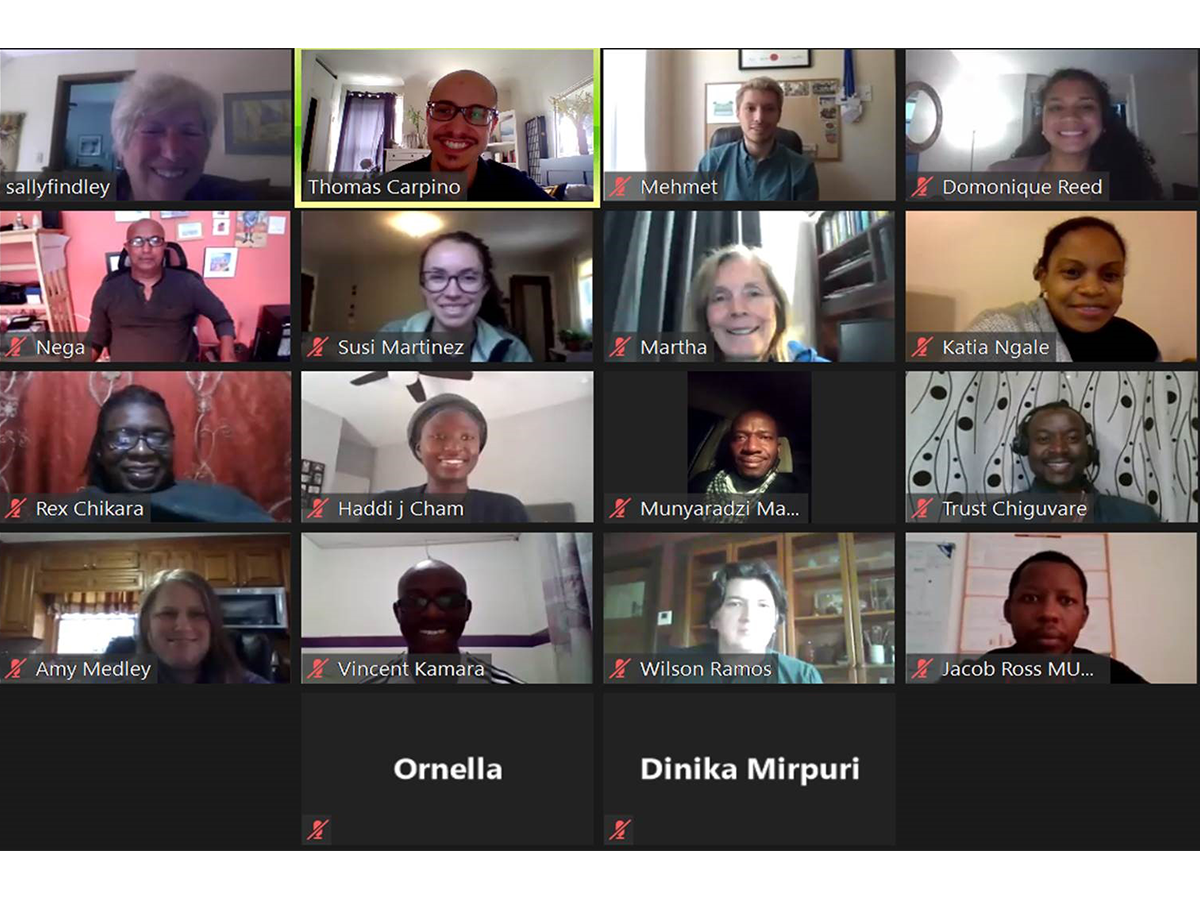In June, ICAP led a month-long digital course on analyzing data from the Population-based HIV Impact Assessment (PHIA) Project as part of the EpiSummer@Columbia course series. This annual series offers condensed summer courses on various epidemiological topics for those interested in public health.
The ‘Analyzing PHIA Data’ course was very timely, as there are several PHIA datasets released and soon to be released to the public. Containing national and subnational statistics, these datasets include detailed information on the status of the HIV epidemic across PHIA survey countries, including individual and household-level assessments of HIV risk factors, HIV prevention, and HIV treatment behaviors.
As each country data file contains nearly 1,000 variables, appropriate analysis requires a sophisticated understanding of the variables and sampling weights. Anticipating a demand among users of these datasets, Sally Findley, PhD, Professor of Clinical Population and Family Health at Columbia’s Mailman School, developed this course for the distance-learning format of the EpiSummer@Columbia courses.
“By the end of the course, the students have truly mastered bi-variate and multi-variate analysis from their chosen PHIA country dataset.”
—Sally Findley
This summer course built upon a legacy of capacity-building programs led by Professor Findley during the implementation of the first 13 PHIA surveys. The week-long, in-country data analysis workshops for PHIA stakeholders were converted into nine course modules taught over Zoom.
Across several African countries and the United States, this course attracted participants from the U.S. Centers for Disease Control and Prevention (CDC), Demographic and Health Surveys (DHS), the Elizabeth Glaser Pediatric AIDS Foundation (EGPAF), graduate students from several universities, and more.
Like the workshops, the course began with an introduction to PHIA survey methods and proceeded through the critical steps of developing a research question, preparing a data analysis plan, and conducting multi-variate analysis.
“This course has been an excellent opportunity to catalyze learning, projects, and collaborations between students.”
—Tom Carpino
Despite the distance-learning format, students regularly participated in the lectures through “See and Do” sections where they used STATA, a widely available statistical software package for data science, to complete the required analyses in real time. Students were also encouraged by Findley and Tom Carpino, PHIA survey coordinator and assistant instructor, to use their analysis to prepare manuscripts for submission to scientific journals.
“In September 2019, we started designing this course to recognize participants of diverse backgrounds,” said Carpino. “This course has been an excellent opportunity to catalyze learning, projects, and collaborations between students. The class has demonstrated incredible dedication and commitment to understanding complex health issues and I am so grateful to have worked with Sally to teach it this summer.”
In addition to regular lectures, students were grouped into ‘Breakout Rooms’ where they could work together on defining variables and developing analyses for topics of shared interest such as HIV stigma, intimate partner violence, and HIV testing and treatment adherence among adolescents.
“Even though I only ‘see’ them twice a week, I have been very pleased to witness how eagerly students are absorbing and applying the lessons from each lecture,” said Findley. “The hours I spent reviewing and commenting on their assignments were well repaid in seeing how quickly they have progressed. By the end of the course, the students have truly mastered bi-variate and multi-variate analysis from their chosen PHIA country dataset.”
Moving forward, many students will not only work towards submitting scientific manuscripts using PHIA data but will also apply what they learned to their own programmatic work. With the tools this course has provided, they are well-equipped to use PHIA data to help advance the HIV response.
A global health leader since 2003, ICAP was founded at Columbia University with one overarching goal: to improve the health of families and communities. Together with its partners—ministries of health, large multilaterals, health care providers, and patients—ICAP strives for a world where health is available to all. To date, ICAP has addressed major public health challenges and the needs of local health systems through 6,000 sites across more than 30 countries.








